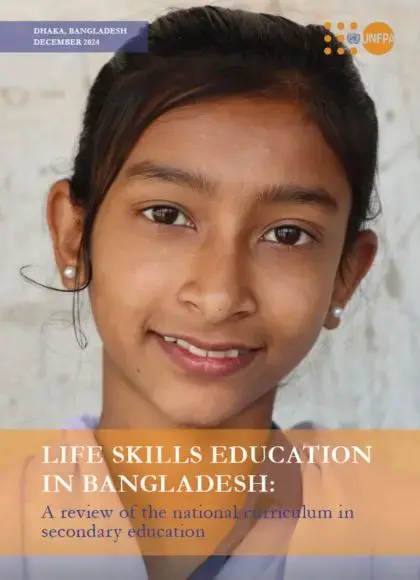Adolescents in Bangladesh face significant challenges related to their health and well-being, including high rates of child marriage, early pregnancies, gender-based violence, and limited access to accurate information and services. Life skills education (LSE), also known as comprehensive sexuality education (CSE), can play a crucial role in addressing these issues by providing children and young people with the knowledge, skills, and values they need to make informed decisions about their health, relationships, safety, and futures.
In 2021, Bangladesh introduced a competency-based national curriculum for general and Madrasah education. This curriculum prioritises practical skills and real-life applications over rote memorisation. A key feature is the introduction of “Wellbeing,” a new subject focusing on physical and mental health and wellbeing for junior secondary students. This curriculum, developed by the National Curriculum and Textbook Board (NCTB) and implemented by the Department of Secondary and Higher Education (DHSE) in junior secondary schools, aligns with the National Curriculum Framework 2021.
The Interim Government’s decision to revert to the 2012 curriculum in January 2025 underscores the dynamic nature of education reform in Bangladesh. Despite this shift, the Government’s commitment to enhancing educational quality and coverage remains steadfast. Therefore, an analysis of the 2021 curriculum retains its value, offering insights into broader education policy trends and highlighting the strengths and weaknesses of recent curricular innovations. This analysis provides valuable context for understanding the ongoing evolution of the education system.
UNFPA commissioned an independent review of the life skills education (LSE) content within the competency-based curriculum for grades 6 to 9 implemented in 2024. This review focused on identifying strengths and gaps in LSE provision and offering recommendations to ensure effective delivery by well-prepared teachers.


